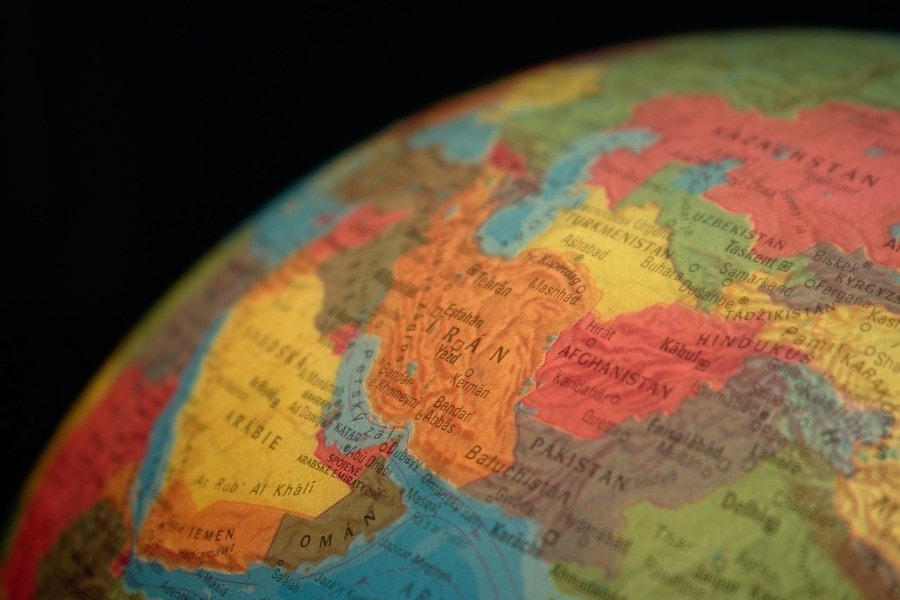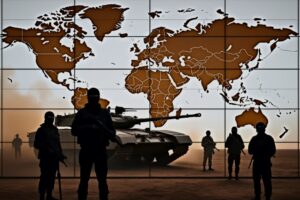Israel’s achievements in ongoing fight against Iran overshadowed by three strategic challenges, growing threat level.

Israel and Iran have been engaged in a largely indirect war for years now. The Israeli side achieved some success in this ongoing conflict, most notably in slowing down Iran’s nuclear progress and military buildup on Israel’s borders.
However, a big picture analysis by the Institute of Policy and Strategy (IPS) points to some negative trends. Despite achieving tactical wins, Israel’s strategic position remains insecure. Moreover, on key fronts the Iranian threat is now greater than before.
Iran closer to nuclear bomb
In the nuclear arena, Israel has been able to delay Iran’s program with overt and covert action. However, Iranian setbacks have been temporary, and Israel has not been able to deal a deathblow to the Iranian nuclear project.
Overall, Iran has made substantial progress toward atomic weapons production in the last two decades. IPS notes that Tehran’s nuclear capacity was very limited in 2003. However, by now it has a significant enrichment infrastructure in place with an international stamp of approval.
Israel has been watching Iran’s nuclear progress with growing concern in recent months. Prime Minister Benjamin Netanyahu warned in his latest UN speech that Tehran is months away from acquiring enough enriched uranium for two bombs. An Israeli expert says that the Iranians are now in a strong position for a nuclear breakout.
Iran axis encircles Israel
Iran’s success in advancing its military encirclement of Israel is a second strategic nightmare. IPS notes that some 20 years ago, it was Tehran that feared encirclement after the US invaded Iraq and Afghanistan. Yet now the tables have turned.
Despite Israel’s continuous campaign to erode Iran’s presence in Syria, the Iranian entrenchment project persists. Moreover, Tehran’s proxies in Syria are not expected to leave soon. A recent study exposed Hezbollah’s broad deployment in southern Syria, suggesting long-term plans.
In Lebanon, Hezbollah boosted its large missile arsenal and is working on acquiring precision capabilities. So far, Israel has been able to hinder these efforts. On the southern border, Iran directly controls Islamic Jihad and is also cooperating with Hamas. Tehran’s allies in Yemen could also pose a threat to Israel.
Notably, former IDF general Yitzhak Brik has repeatedly warned that the IDF is incapable of blocking a missile assault by the Iran axis. Other experts agree that Israel’s home front will face significant destruction in any future war with Hezbollah.
Israel lacks global support
The third problem for Israel is the failure to enlist sufficient international support to fully challenge Tehran. The US Administration has taken a hard line on Iran, but has not been able to translate it into strategic achievements, IPS says.
Meanwhile, the emerging alliance with Gulf partners is promising, but Israel cannot yet count on them to counter Iran’s regional drive, IPS warns. The Sunni camp remains divided, and in any case will not dare to use force at this time, the report says. For now, Gulf states are still strongly deterred by Tehran and fully depend on US military power for protection.
As to other international actors, Israel will likely not get any meaningful help from Europe, Russia or China. On the contrary, Iran may advance alliances that would further complicate Israel’s position.
Critical year for Israel
With new potential tensions emerging in the Red Sea, the Israel-Iran conflict will likely escalate in the coming year. Sooner or later, low-intensity warfare will explode into a major fight.
The IDF has been preparing intensely for such flareup and expects the next war to erupt on several fronts. Barring any unforeseen developments, Israel may have to deal Iran a decisive blow to change the strategic equation. The next year could prove to be critical.


